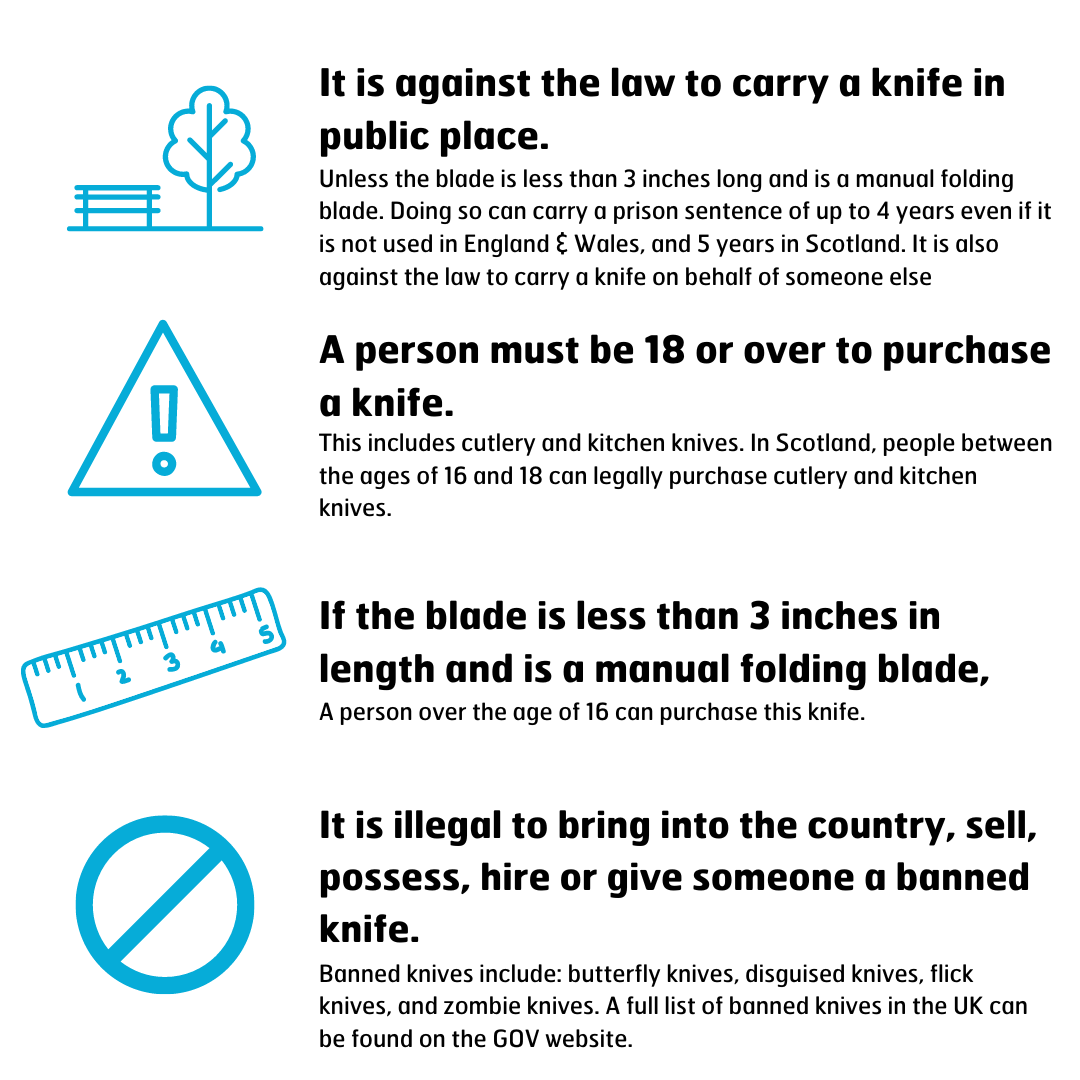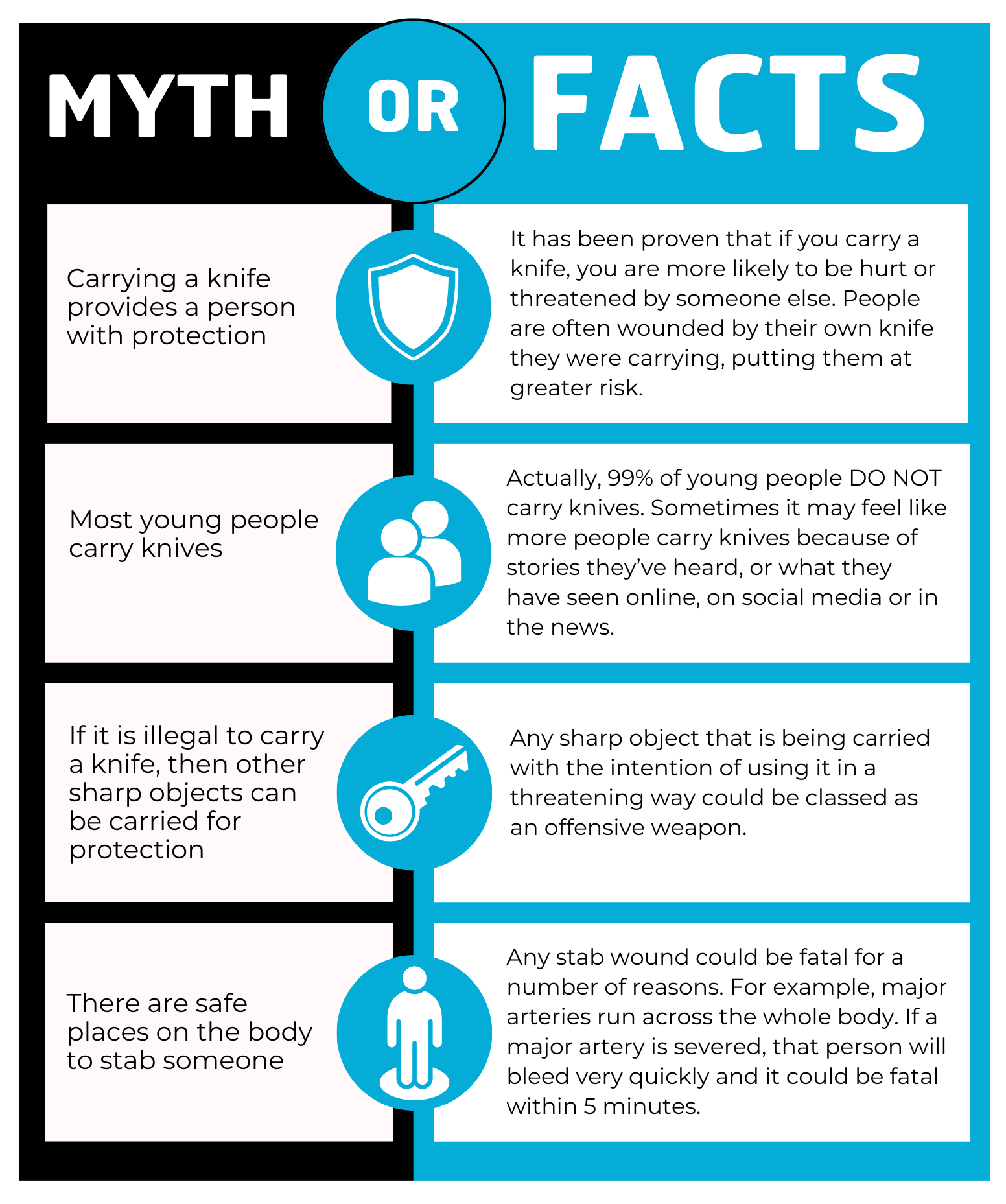Knife crime
What is knife crime?
Knife crime is any crime involving a knife or sharp object. This includes: carrying a knife, owning a banned knife, trying to buy a knife if you are under 18, and/or threatening, injuring or fatally wounding someone with a knife.
An offensive weapon is defined as any item that has been made or adapted for the intention to cause hurt or harm to another person, under the Offences Weapon Act 2019. It is also important to note that pepper spray is illegal to possess in the UK, and is classed as a firearm under Section 5 (1)b of the Firearms Act 1968.
Self-defence or self-protection are not valid reasons for carrying a knife or offensive weapon, and this choice could have serious consequences for that person, including serious or fatal injury to themselves or others, and a criminal record.
Knife crime laws
Listed below are the knife crime laws for the UK. Please note there are some variations in the law between England, Wales & Scotland.

Watch Lewis' story below to find out about some of the signs to spot:
Seeing these signs in someone may not automatically mean they are being forced to carry weapons. It may be that something else is going on for that person. But, if you spot a number of these signs in someone, it is important to raise this with a trusted adult to ensure that person is safe.
Busting the myths around knife crime
Below are some key facts around knife crime to help bust the myths:


Stop & Search
Police have the power to stop and search any person if they have 'reasonable grounds' to suspect that person may be carrying something that is against the law or could cause harm to others. This could include: illegal drugs, a knife or weapon, stolen items or an item that could be used to commit a crime.
Examples of 'reasonable grounds' could include:
- a member of the public has reported that someone is carrying something they shouldn't be.
- somebody matches the description of who they are looking for.

Joint Enterprise
Joint Enterprise is a section of the law which allows two or more people to be convicted of the same crime, potentially receiving the same sentence, even if they had differing levels of involvement.
The Joint Enterprise law is for circumstances where there is evidence to prove a group of people were involved in a crime, but where it is difficult to determine who is the main perpetrator. For example, if a murder has taken place and there is evidence that 5 people were involved, but it is difficult to determine which of those 5 dealt the fatal blow, they could all be convicted of murder under Joint Enterprise.

Victim of knife crime?
As Fearless is 100% anonymous, we are unable to take reports from victims of crime.
If you have been a victim of knife crime, it’s really important that you talk to a parent/guardian, an adult you trust or report it to the police.
You can also get more information, support and advice from the organisations listed on our youth support services page.

Anonymity
Fearless is a service that allows you to pass on information about crime 100% anonymously. Anonymous means your identity is completely unknown.

Give information anonymously
Report a crime 100% anonymously by completing our online form or calling 0800 555 111

Youth support services
Access a selection of youth organisations who can offer further information, advice and support for whatever you're dealing with.
